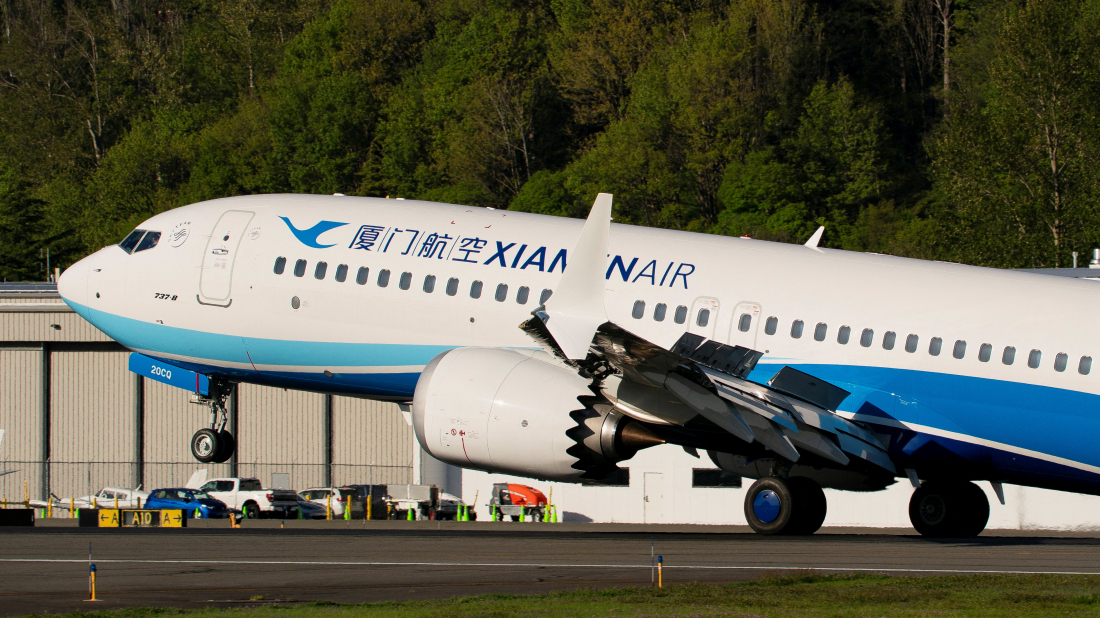U.S. northeast blizzard: Two feet of snow, 5,700 flights cancelled, National Guard deployed
A powerful winter storm has brought large parts of the U.S. Northeast to a standstill, dumping more than a foot of snow across several states and seve...

Beijing is in talks with Boeing over a potential order of up to 500 aircrafts, a deal that could reshape the U.S. manufacturer’s fortunes in China after years of stalled sales.
The discussions came to light during a visit by a delegation of U.S. lawmakers, with Ambassador David Purdue suggesting negotiations may be entering their final stretch.
If concluded, the order would be one of Boeing’s largest in history and a rare commercial breakthrough in a market increasingly dominated by its European rival, Airbus.
The possible purchase comes against the backdrop of prolonged US-China tensions, where trade disputes, tariffs, and regulatory obstacles have heavily constrained Boeing’s access to the Chinese market.
Deliveries of the 737 MAX, once Boeing’s best-selling jet, were frozen for years following safety concerns and political friction, giving Airbus a decisive edge. At the same time, Beijing has nurtured its own aerospace ambitions through COMAC, developer of the domestically built C919 jet, showing China’s long-term goal of reducing reliance on foreign suppliers.
The last major Boeing order from China dates back to November 2017, when China Aviation Supplies Holding Co. signed a deal for 300 planes valued at about $37 billion during President Donald Trump’s state visit in his first term.
Since then, large-scale purchases have stalled amid escalating trade and geopolitical disputes, leaving Boeing largely sidelined from one of the world’s most vital aviation markets.
For Boeing, the prospect of a 500-plane deal represents not only a critical commercial lifeline but also an opportunity to reassert itself in China at a time when its global competitiveness has been under pressure.
For Beijing, moving forward with the purchase could signal a willingness to compartmentalise aviation trade from the ongoing political disputes, while also ensuring sufficient supply to meet the surging demand of its airlines.
Whether the deal ultimately proceeds may hinge on delicate political calculations in both capitals, balancing the need for cooperation against the realities of enduring strategic rivalry.
A seven-month-old Japanese macaque has drawn international attention after forming an unusual bond with a stuffed orangutan toy after being rejected by its mother.
Pakistan said it carried out cross-border strikes on militant targets inside Afghanistan after blaming a series of recent suicide bombings, including attacks during the holy month of Ramadan, on fighters it said were operating from Afghan territory.
Italy said a fond farewell to the Winter Olympics on Sunday with an open-air ceremony in the ancient Verona Arena that celebrated art and sporting achievement at a Games lauded as a model for how to stage such events.
Ukraine’s President Volodymyr Zelenskyy has approved new sanctions targeting Russian maritime operators, defence-linked companies and individuals connected to Moscow’s military and energy sectors, according to official decrees issued on Saturday.
The chief executive of Google DeepMind, Demis Hassabis, has called for more urgent research into the risks posed by artificial intelligence, warning that stronger safeguards are needed as systems become more advanced.
Thousands of people gathered across Europe and beyond over the weekend in solidarity with Ukraine, as the war with Russia entered its fifth year.
A powerful winter storm has brought large parts of the U.S. Northeast to a standstill, dumping more than a foot of snow across several states and severely disrupting transport and daily life.
The United Nations mission in Afghanistan said on Monday it had received “credible reports” that at least 13 civilians were killed and seven others injured in overnight Pakistani airstrikes inside Afghanistan.
The former British ambassador to the U.S. Peter Mandelson has been arrested by police in London on suspicion of misconduct in public office.
At least 25 members of Mexico's National Guard have died during a wave of violence in the state of Jalisco after the killing of a drug lord, the country's security minister has said.
You can download the AnewZ application from Play Store and the App Store.

What is your opinion on this topic?
Leave the first comment